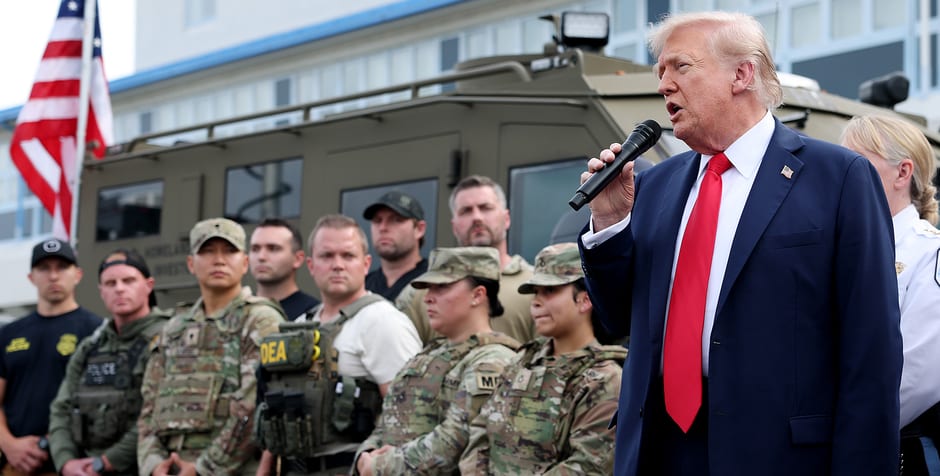ACLJ Defends Presidential Authority To Utilize the National Guard To Protect Federal Officers Under Attack
Listen tothis article
A rogue judge’s injunction has put Immigration and Customs Enforcement (ICE) officers in danger and undermined two centuries of constitutional law at a time when ICE agents face unprecedented threats.
President Trump invoked his statutory authority under federal law to federalize National Guard forces in order to protect ICE officers and facilities that have faced sustained violent attacks. In response, the state of Illinois and others sued, claiming the President lacked authority to make this deployment.
A district court sided with Illinois and issued a preliminary injunction blocking the President’s order – effectively preventing the National Guard from protecting federal officers under assault. The case has now reached the Supreme Court on an emergency application for a stay of that injunction – to end it – and allow the President to protect ICE agents.
The ACLJ has filed a critical amicus brief with the U.S. Supreme Court defending President Trump’s constitutional authority to deploy National Guard forces. This case strikes at the heart of presidential power and the safety of federal law enforcement personnel doing their jobs.
Add your name to the petition: Defeat Rogue Judges – Defend the Constitution.
The Real-World Consequences
This isn’t just an academic debate about constitutional theory. Federal immigration officers are under sustained violent assault. Radicals have attacked ICE facilities, assaulted federal officers, shot at agents, and created conditions where federal law cannot be safely executed. These are organized efforts using violence and intimidation to prevent federal officials from performing their lawful duties. There has been an 8,000% increase in death threats against ICE law enforcement.
When violent individuals assault or fire weapons at federal officers, attempt to burn down federal buildings, and force facilities to close for weeks, the President must be able to respond. ICE officers shouldn’t have to choose between enforcing federal immigration law and their own physical safety. Yet a single district court judge has now issued an injunction blocking the President from using National Guard forces to protect these officers and restore order.
A Clear Constitutional Authority
The law is straightforward. 10 U.S.C. § 12406(3) authorizes the President to federalize National Guard forces when he is “unable with the regular forces to execute the laws of the United States.” This isn’t a novel power grab – it’s the modern version of militia authority that dates back to President George Washington and the Founding Era.
This law also isn’t controversial. President Washington used militia forces to suppress the Whiskey Rebellion when violent protesters prevented federal tax collectors from executing their duties. President Adams deployed federal troops during Fries's Rebellion when just 150 men used violence to obstruct the federal tax law. In both cases, each President determined that federal officials couldn’t safely execute the laws, and they called up militia forces to restore order.
The Supreme Court settled this question in 1827 in Martin v. Mott, holding that “the authority to decide whether the exigency [urgent need] has arisen, belongs exclusively to the President, and that his decision is conclusive upon all other persons.” The Court reaffirmed this principle in 1849 in Luther v. Borden. These aren’t dusty relics – they represent the constitutional framework that has protected federal authority for nearly two centuries.
The Danger of Judicial Overreach
A single district court judge has now inserted himself into military command decisions, second-guessing the President’s assessment of threats to federal personnel and blocking protective deployments. This is precisely the kind of judicial overreach the Founders warned against and that Martin and Luther rejected.
If any federal judge can enjoin military deployments by questioning the President’s operational judgments, we invite chaos. Different courts in different circuits could issue conflicting orders. Military commanders would face the impossible task of complying with contradictory judicial mandates while trying to protect personnel under attack. Unity of command would dissolve into judicial micromanagement.
The ACLJ’s brief urges the Supreme Court to stay the district court’s injunction and reaffirm that presidential determinations about National Guard deployment are unreviewable political questions. The President must be able to fulfill their duty to ensure federal laws are faithfully executed – even when violent mobs try to prevent it.
